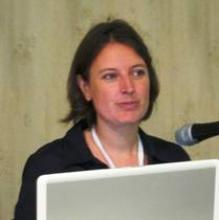Someone’s dropping the baton when it comes to pediatric discharge information, but just who that is appears to depend on what part of the relay team you’re on.
A full 85% of hospitalists said they reliably send discharge information and 79% said it contained all elements needed by the primary care physician.
Only 72% of PCPs, however, said they got the information and only 65% felt it was complete.
"Perceptions of PCPs and hospitalists regarding the timeliness and content of discharge communication do differ significantly," Dr. JoAnna Leyenaar said at the recent Pediatric Hospital Medicine 2012.
Although the majority of the PCPs surveyed said they receive communication within 2 days of discharge, "the content may be suboptimal," she added.
Information about immunizations given during hospitalization proved particularly troublesome, with a "communication gap" of 47% existing between the 83% of PCPs who rated information about this clinical element as "essential" and the 36% who said they currently received it.
"We certainly know that avoidance of duplicate immunizations reduces unnecessary patient discomfort, costs, and adverse events, so the size of this gap was surprising and concerning," said Dr. Leyenaar, a pediatrician at Boston’s Tufts Medical Center. "When we asked hospitalists about what was essential, they agreed that immunizations were essential to report, which suggests that this gap is less related to differences in hospitalist and PCP perspectives and potentially more related to communication system issues."
Other clinical elements where the baton pass proved wonky were: pending lab or test results, with a gap of 30% (75% essential vs. 45% currently received), information on discharge medications, with a gap of 25% (96% vs. 72%), and suggested management plans, with a gap of about 22% (72% vs. 51%).
The survey was conducted by the Value in Inpatient Pediatrics (VIP) Network’s Transitions of Care Collaborative – part of the Quality Improvement Innovation Network of the American Academy of Pediatrics – among 201 PCPs and 71 pediatric hospitalist program directors. Most PCPs were pediatricians (91%), in private practice (63%), and practicing for more than 15 years (44%).
Dr. Leyenaar said the collaborative will be implementing and tracking a discharge communications bundle that contains essential elements to determine whether this can improve the timeliness and content of discharge communications.
It may do little, however, to change physician perceptions. A Kaiser Permanente physician in the audience said the perception in his practice was that docs weren’t receiving discharge faxes, but when they reconciled those complaints with network records they verified that 80% had actually received the fax.
Dr. Leyenaar reports no relevant conflicts of interest and a coauthor reports a medical education grant from Pfizer.
–Patrice Wendling (on Twitter @pwendl)



